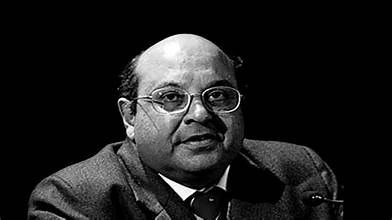Former Supreme Court judge Justice Rohinton Nariman, on Thursday said that a part of the Apex Court verdict on Ayodhya dispute, regarding the Places of Worship Act, could be cited across different courts of the country, while dealing with the suits seeking surveys of mosques and dargahs alleged to have been built over temples.
Delivering the inaugural lecture of the Ahmadi Foundation, which has been established in the memory of Justice Aziz Mushabber Ahmadi, 26th Chief Justice of India (CJI), Justice Nariman termed the judgment on Ram Mandir-Babri Mosque a travesty of justice to secularism.
The former Apex Court judge, said that five pages of the Constitution Bench judgment affirming the Places of Worship Act of 1991, however, formed a silver lining of the verdict.
Noting that the Act froze the places of worship as they existed on August 15, 1947, Justice Nariman said that these five pages were sound in secularism, which formed part of the basic structure that could not be looked backward, but had to be looked forward.
Expressing concern over the rising number of cases filed before civil courts, particularly in north India since 2019, seeking restoration of the temples allegedly destroyed in the past to build mosques, the former Apex Court judge said that these were like hydra heads popping up all over the country.
As per Justice Nariman, a number of cases have been filed before civil courts, particularly in north India since 2019, seeking restoration of the temples allegedly destroyed in the past to build mosques.
The latest among them was the case related to Shahi Jama Masjid situated in Sambhal, Uttar Pradesh, in which in a civil court recently ordered a survey following a claim that it was built over a temple.
Suits after suits were being filed all over the place now, not only concerning mosques, but also dargah (shrines), he said, adding that the only way to scotch all this and to cauterize all these hydra heads was by applying these five pages in this very judgment.
Those five pages related to the Places of Worship Act were a declaration of law by the Supreme Court, which should be read out before each district court and High Court to prevent further such claims being made against various religious structures, he said.
Once this was done, the Places of Worship Act would take its due course, he added.
As per Justice Nariman, by enacting the law, the State enforced a constitutional commitment and operationalised its obligation to uphold the equality of all religions and secularism, which formed a part of the basic features of the Constitution.
He said the Places of Worship Act imposed a non-derogable obligation towards enforcing its commitment to secularism under the Indian Constitution.
Justice Nariman termed the Act a legislative instrument designed to protect the secular features of the Indian polity, which was one of the basic features of the Constitution.
He said non-retrogression was a foundational feature of the fundamental constitutional principles, of which secularism was a core component. The Places of Worship Act, thus, was a legislative intervention that preserved non-retrogression as an essential component of secularism.


